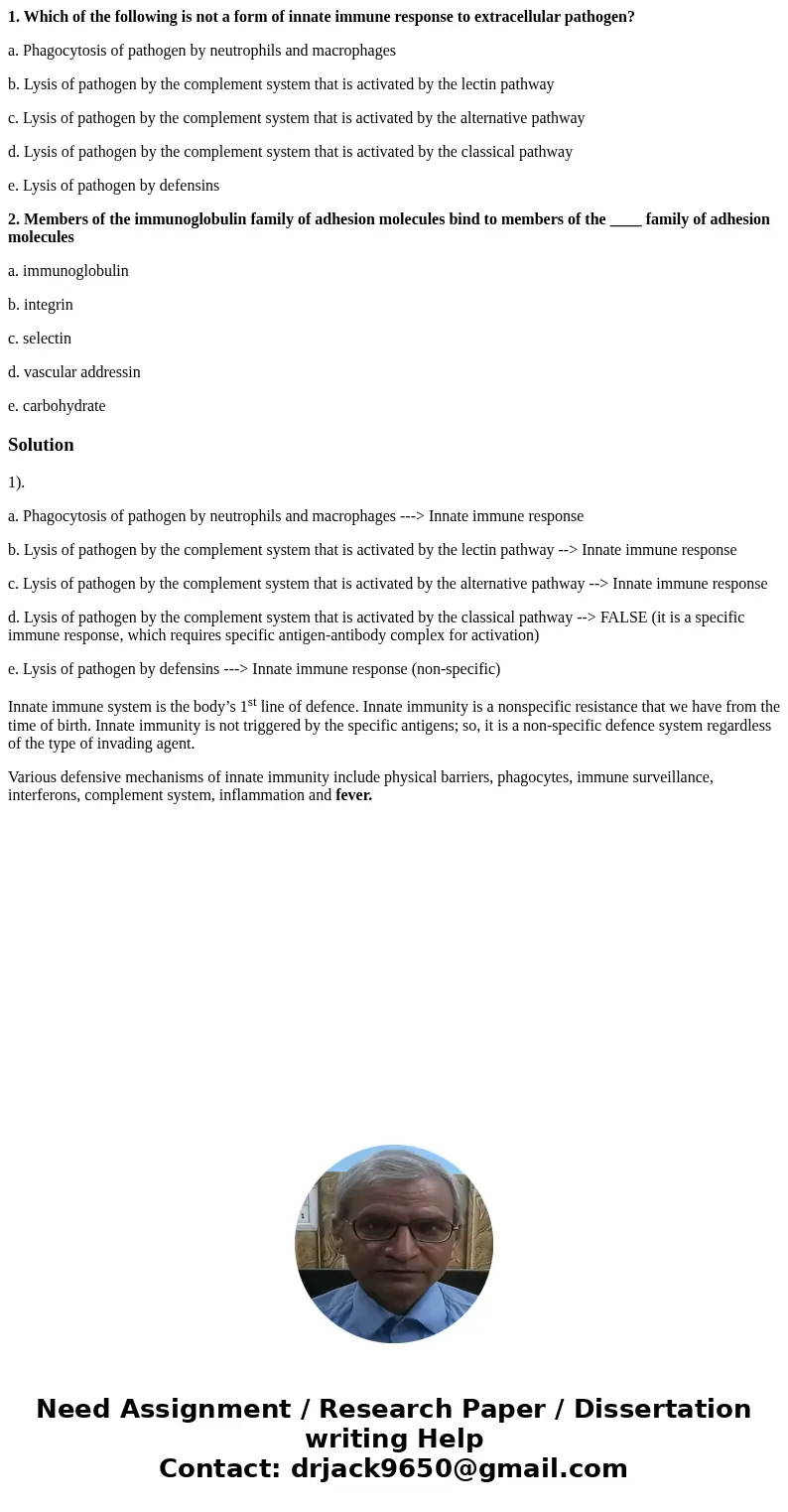1 Which of the following is not a form of innate immune resp
1. Which of the following is not a form of innate immune response to extracellular pathogen?
a. Phagocytosis of pathogen by neutrophils and macrophages
b. Lysis of pathogen by the complement system that is activated by the lectin pathway
c. Lysis of pathogen by the complement system that is activated by the alternative pathway
d. Lysis of pathogen by the complement system that is activated by the classical pathway
e. Lysis of pathogen by defensins
2. Members of the immunoglobulin family of adhesion molecules bind to members of the ____ family of adhesion molecules
a. immunoglobulin
b. integrin
c. selectin
d. vascular addressin
e. carbohydrate
Solution
1).
a. Phagocytosis of pathogen by neutrophils and macrophages ---> Innate immune response
b. Lysis of pathogen by the complement system that is activated by the lectin pathway --> Innate immune response
c. Lysis of pathogen by the complement system that is activated by the alternative pathway --> Innate immune response
d. Lysis of pathogen by the complement system that is activated by the classical pathway --> FALSE (it is a specific immune response, which requires specific antigen-antibody complex for activation)
e. Lysis of pathogen by defensins ---> Innate immune response (non-specific)
Innate immune system is the body’s 1st line of defence. Innate immunity is a nonspecific resistance that we have from the time of birth. Innate immunity is not triggered by the specific antigens; so, it is a non-specific defence system regardless of the type of invading agent.
Various defensive mechanisms of innate immunity include physical barriers, phagocytes, immune surveillance, interferons, complement system, inflammation and fever.

 Homework Sourse
Homework Sourse